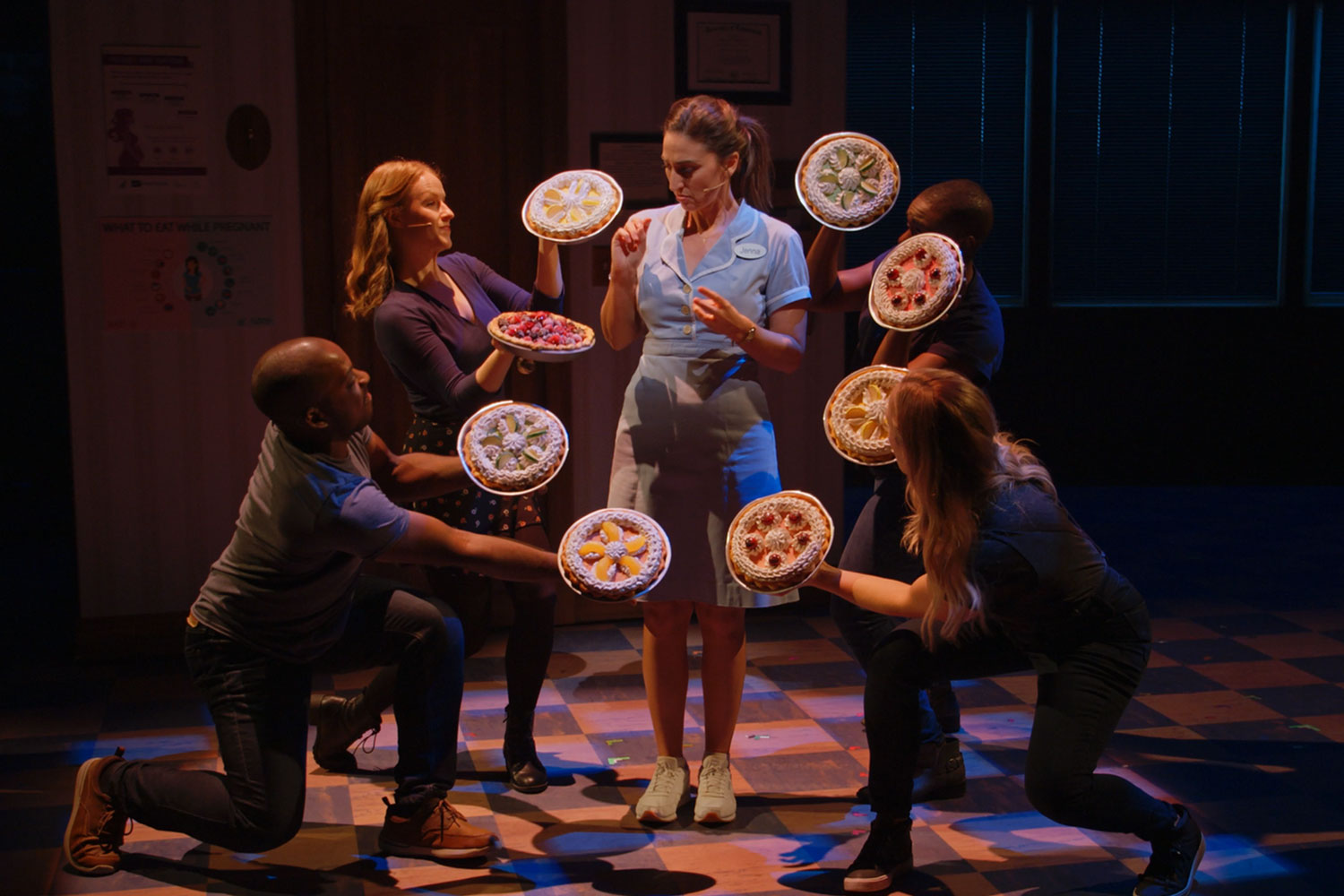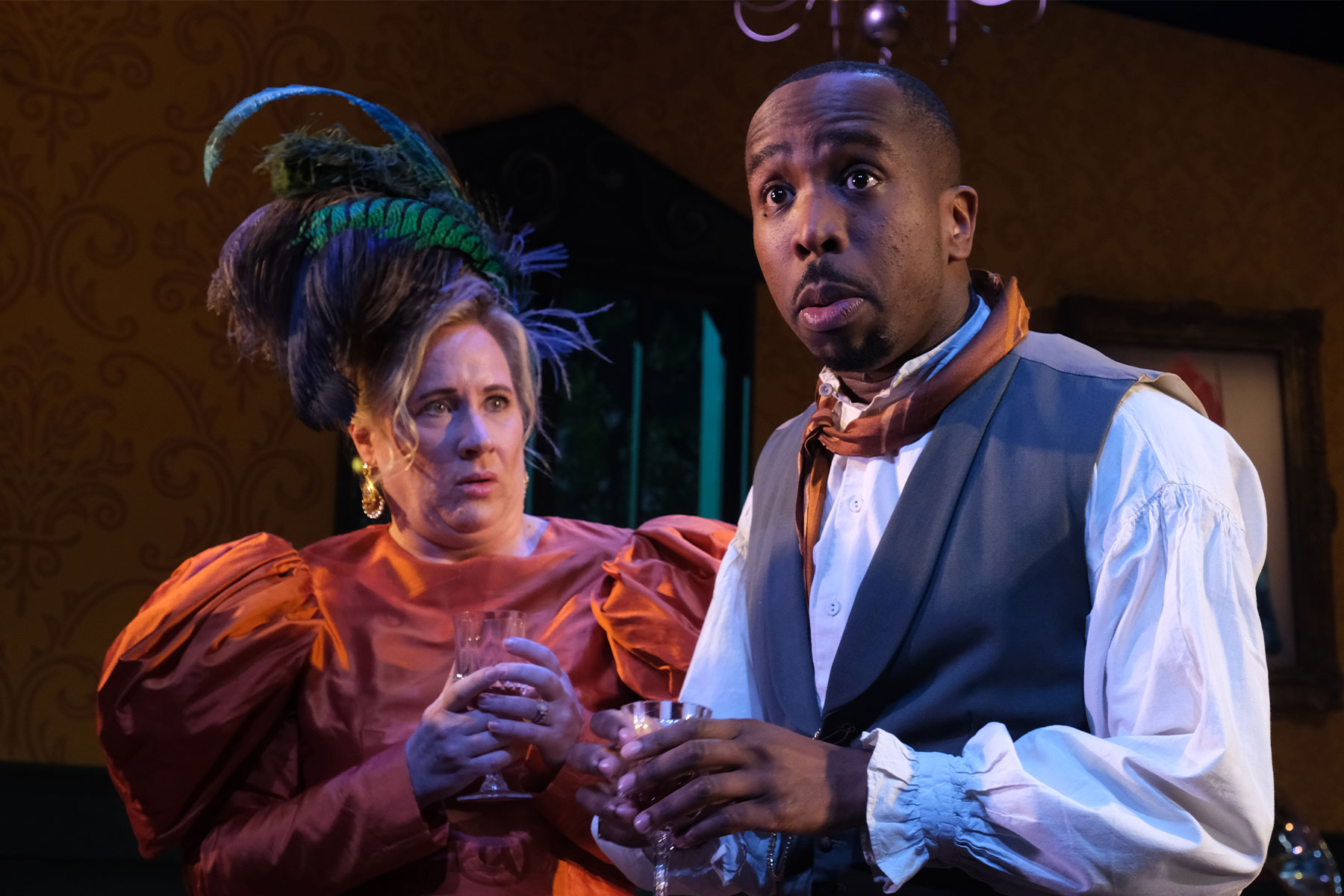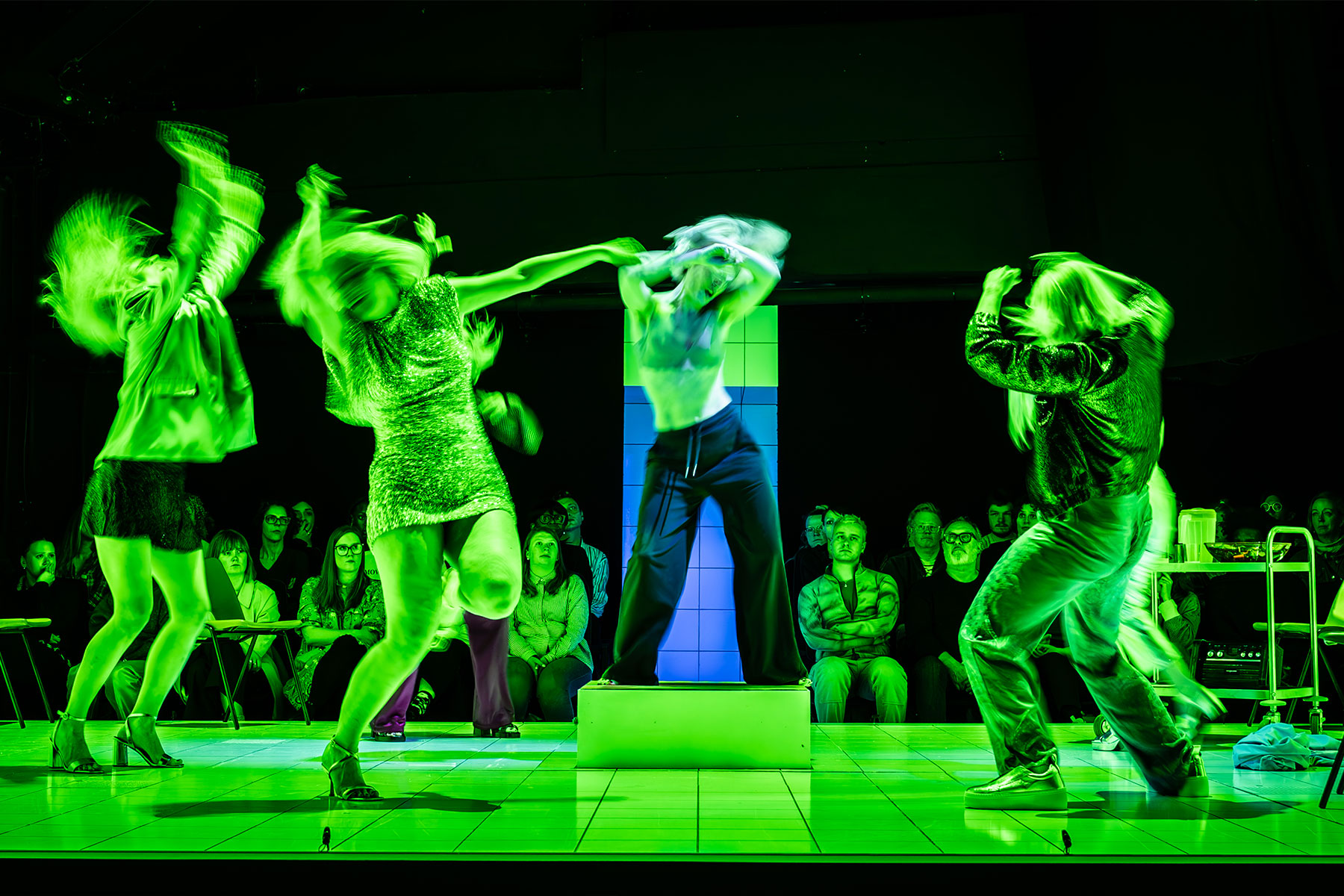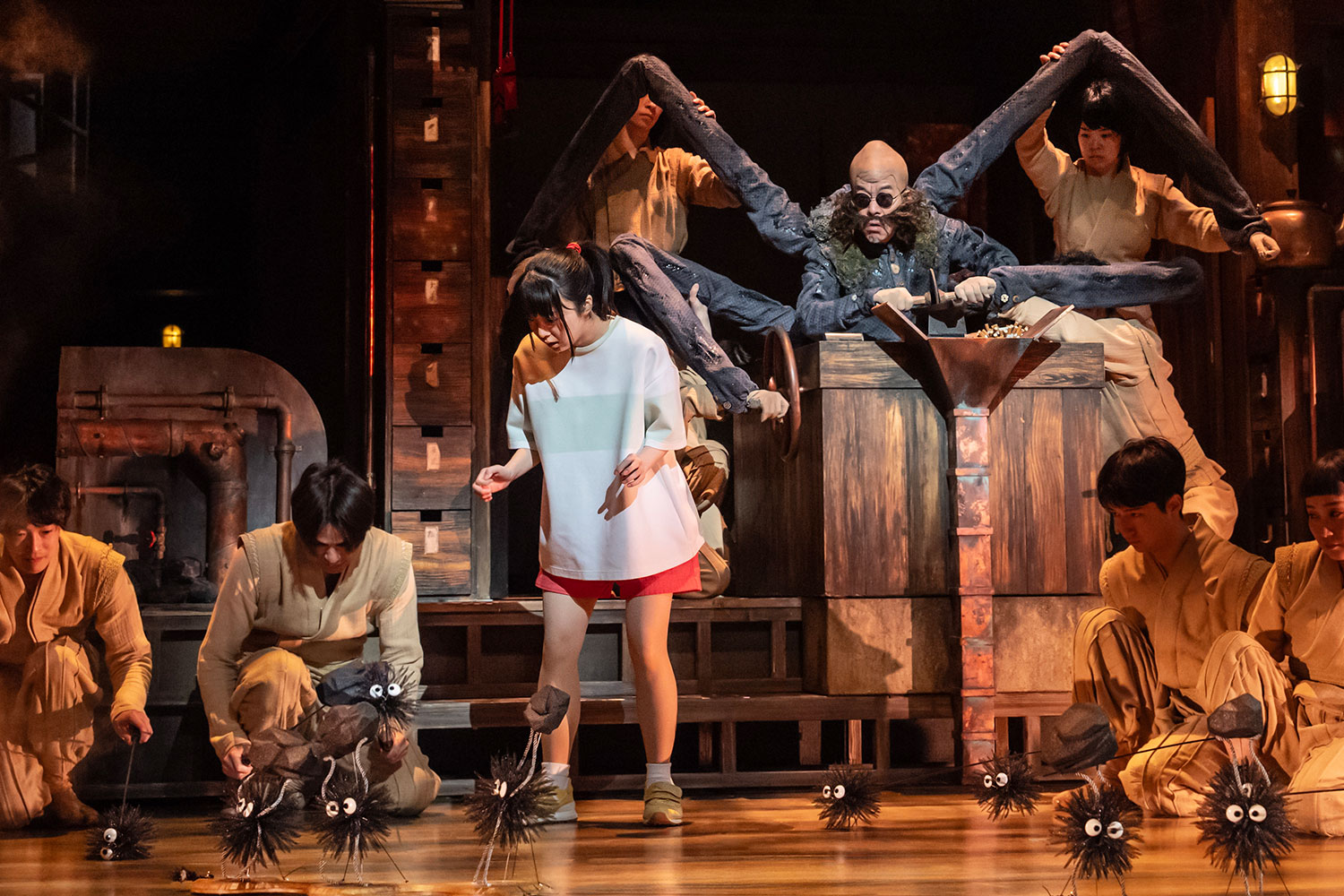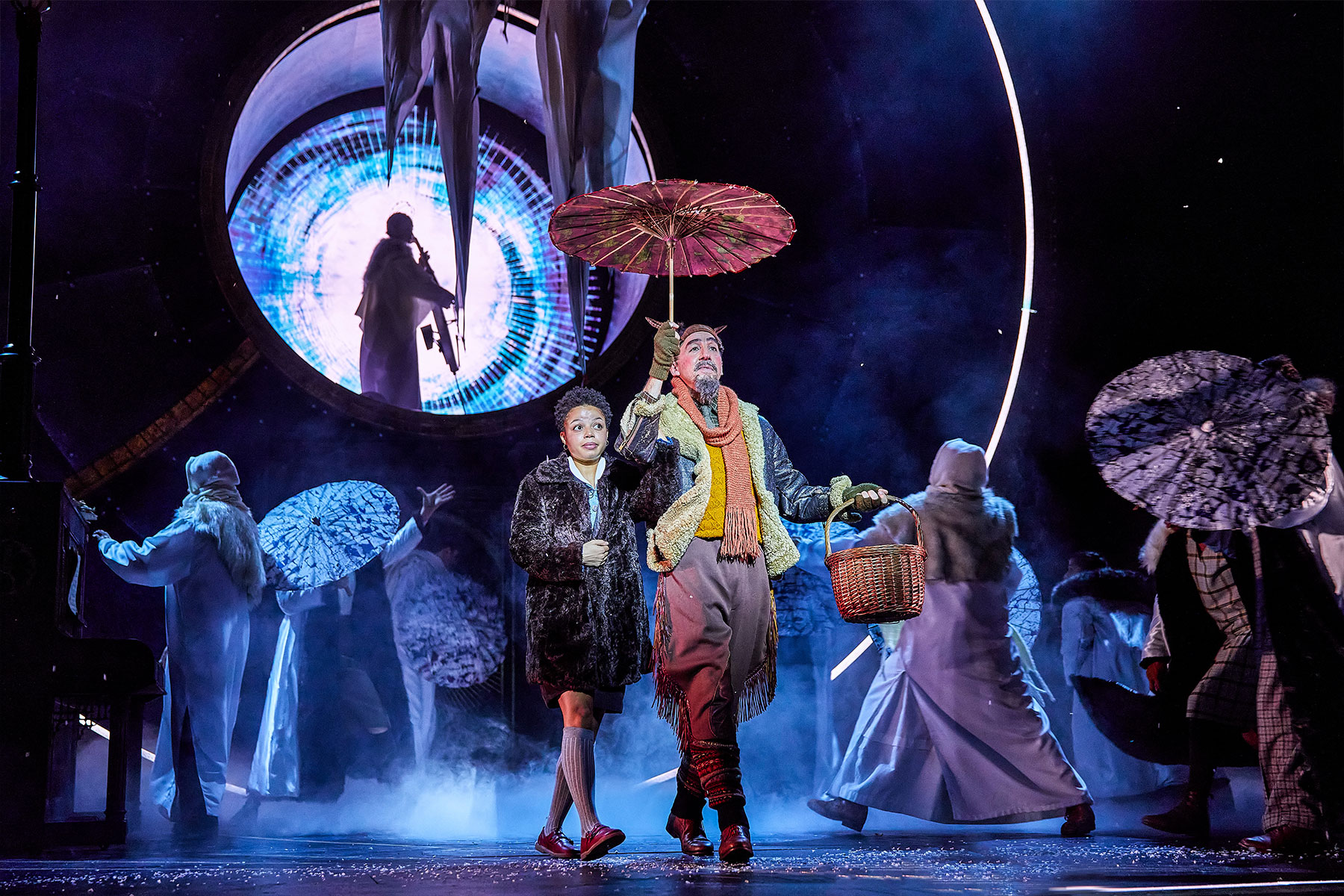Aida
In the title role, Galina Bernaz displays a voice which can rise over the others on stage and yet maintain the legato which underlines the pathos of her situation. “Numi pietá” and “O patria mia” were particularly effective. She conveyed a princess’s pride, but also the passivity which is necessary to the slave’s survival. Zarui Vardandean’s Amneris starts off quietly enough in “Trema o rea” but builds to the climatic “Oh! che mai parlo” and the final prayer.
Olga Rusnac as the (here on-stage) priestess in the second scene of the first act also makes her mark. It’s something of a ladies’ night overall. The smaller parts produce the best male singing – Vasile Micusa as the messenger, Igor Sviridov as the king and Valeriu Cojocaru as Ramfis. This high priest, seated in confrontation with the king during the triumph scene, knows that it the gods’ earthly representatives and not the pharaoh who rule Egypt.
As Radames, Patrizio Ha takes a little time to settle down into the part but comes into his own for the final “O terra, addio” duet. Vladimir Dragos is the stentorian Amonasro, not the most sympathetic of Verdi’s father figures. The men of the Chisinau National Opera chorus are stronger in the basses than in the tenors, though the women produce a pretty sound for the first scene of the second act and as priestesses.
I shall pass over the dancers in the temple and triumph scenes; they really don’t fit in either choreographically or in costume. Elsewhere these rely on a palette of whites, browns and red, against monumental Anubis and sphinx statues. Gheorghe Stanciu conducts with accuracy but never with the empathy which this tragedy demands. As surtitles go, Jonathan Burton’s are succinct and unobtrusive.
An Ellen Kent Amphitheatre Production reviewed at the Corn Exchange, King’s Lynn
– Anne Morley-Priestman



